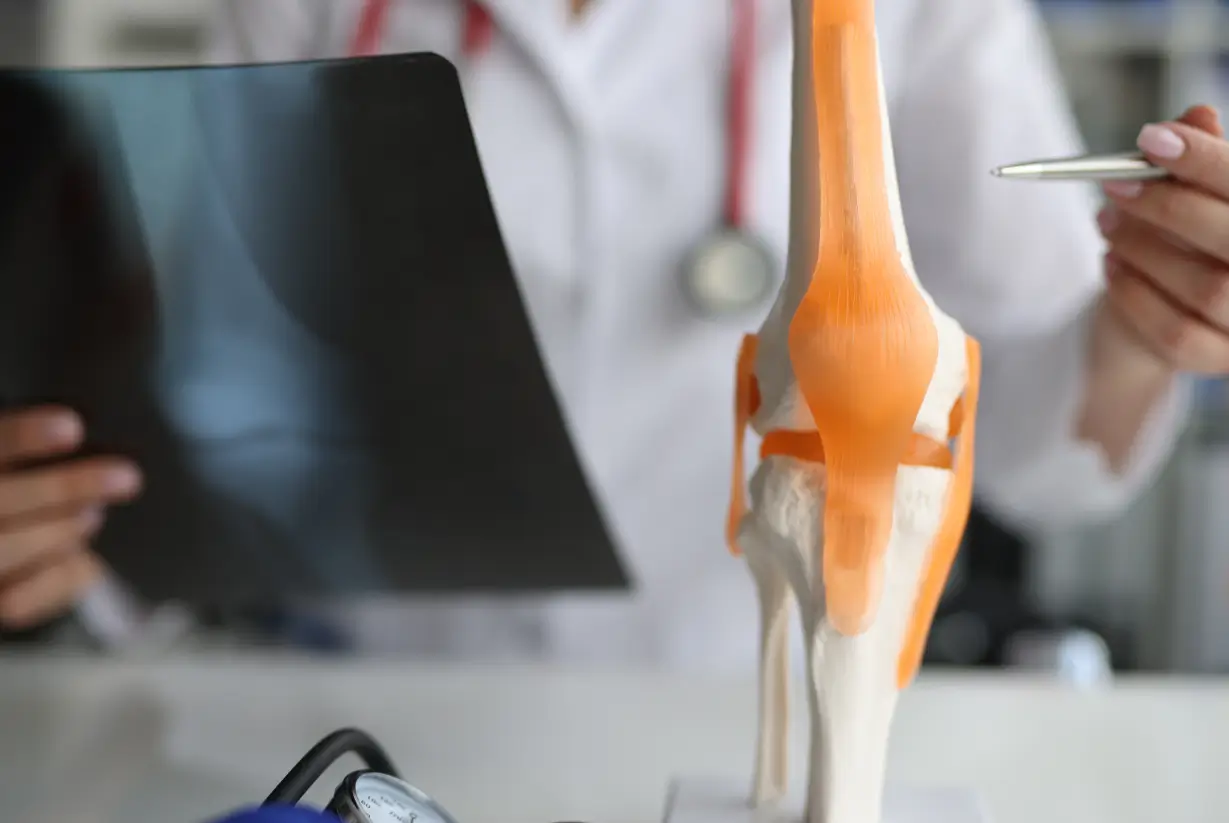Teenage pregnancy continues to be a pressing global issue, with an estimated 21 million pregnancies each year among adolescents aged 15–19 in low- and middle-income countries. Alarmingly, about half of these pregnancies are unintended, often leading to serious health risks and social challenges. Complications such as eclampsia, infections, and low birth weight are significantly more common in young mothers, underlining the urgent need for accessible and effective contraceptive options.
One such option is Depo-Provera, a widely used injectable birth control that offers up to three months of pregnancy prevention per dose. Though approved for both adolescents and adults, growing concerns about bone health and long-term use have sparked important discussions: Is there a recommended age range for safe Depo-Provera use?
In this article, we’ll unpack the age-related considerations of Depo-Provera—exploring its benefits, potential risks, and what current medical guidelines say about who should (or shouldn’t) use it.
Key Takeaways
- There is no official minimum age for Depo-Provera, but it is typically prescribed to adolescents aged 16 and older, depending on individual health needs and circumstances.
- Bone health risks are a major concern for younger users, as long-term Depo-Provera use may lead to reduced bone mineral density, increasing the risk of fractures later in life.
- To support bone strength, patients are encouraged to maintain adequate calcium and vitamin D intake, engage in weight-bearing exercises, and consider limiting the duration of Depo-Provera use.
- In perimenopausal women, Depo-Provera can help manage symptoms such as irregular periods and heavy bleeding, but it requires monitoring for potential impacts on bone, cardiovascular, and metabolic health.
- Depo-Provera is not a replacement for menopause hormone therapy and should be evaluated alongside other hormonal or non-hormonal treatment options.
- A thorough individualized risk assessment is essential before starting Depo-Provera, especially for those with pre-existing conditions such as osteoporosis, blood disorders, or hormonal imbalances.
- The duration of use should be discussed with a healthcare provider, as Depo-Provera may not be suitable for long-term contraception due to potential side effects.
- Making informed contraceptive decisions requires close collaboration with a healthcare provider to balance the benefits and risks of Depo-Provera based on age and overall health profile.
About: Medical Spa RX provides medical practices with premium products at the best prices. If you’re looking to buy Depo-Provera online for your practice, the sales representatives at Medical Spa RX can give you guidance.
Is There a Minimum Age to Start Depo-Provera?
There is no official minimum age to begin using Depo-Provera, but healthcare providers commonly prescribe it to adolescents aged 16 and above. In certain cases, it may be considered for younger teens who require reliable birth control and are unable to tolerate or use other methods. The decision is made on a case-by-case basis, with several important factors guiding the recommendation.

Key considerations include:
- Bone Health Risks: The long-term use of Depo-Provera in younger patients may reduce bone mineral density, potentially increasing the risk of fractures later in life.
- Menstrual Cycle Effects: The injection can disrupt the natural hormonal balance, potentially affecting menstrual cycle regularity and leading to unpredictable bleeding patterns.
- Alternative Birth Control Options: In some cases, providers may explore non-hormonal or less invasive methods before recommending Depo-Provera, especially for first-time contraceptive users.
Before prescribing, a doctor will assess the patient’s overall health, menstrual history, and potential Depo-Provera side effects to determine if it is the most suitable choice. Open, honest conversations between patient and provider are essential for making safe and informed decisions about contraceptive care.
Bone Health and Depo-Provera Use in Adolescents
Bone health is a major consideration when prescribing Depo-Provera to teenage users, as adolescence is a critical period for building lifelong bone strength. Prolonged use may lead to a decrease in bone mineral density, potentially elevating the risk of osteoporosis and fractures in later life. For this reason, preventive strategies are strongly encouraged for adolescent patients using Depo-Provera.
Steps to protect bone health include:
- Calcium and Vitamin D Intake: Maintaining adequate intake of these nutrients is crucial for supporting strong bones.
- Regular Weight-Bearing Exercise: Activities such as walking, running, dancing, or strength training can help build and preserve bone mass.
- Limited Duration of Use: Healthcare providers may recommend short-term use of Depo-Provera for adolescents, with regular reviews to evaluate the ongoing need.
- Bone Density Monitoring: Periodic bone scans or assessments may be suggested for long-term users, especially those with additional risk factors.
- Considering Alternatives: If the bone-related risks outweigh the benefits, other birth control options, such as IUDs or pills, may be more appropriate.
Teenagers and their families should openly discuss long-term health goals with their doctor to ensure that any contraceptive method, including Depo-Provera, is aligned with both immediate needs and future well-being.
Using Depo-Provera Safely in Perimenopausal Patients
Depo-Provera can offer practical benefits for perimenopausal women, especially when it comes to managing irregular menstrual cycles, reducing heavy bleeding, and addressing hormonal fluctuations. However, its use during this life stage requires careful clinical evaluation due to age-related health shifts and potential contraindications.

Key Safety Considerations
- Bone Health: Since menopause naturally increases the risk of bone density loss, using Depo-Provera may compound this issue. Supplementation with calcium and vitamin D and regular monitoring are recommended.
- Menstrual Changes: Some women experience complete cessation of periods. Others may have spotting or prolonged bleeding. However, both warrant medical attention.
- Cardiovascular and Metabolic Health: Women with existing conditions, such as high blood pressure, heart disease, or diabetes, should consult their physician carefully before starting treatment.
- Hormonal Alternatives: While Depo-Provera helps regulate menstruation, it is not a replacement for hormone therapy aimed at managing full menopausal symptoms.
Women in their 40s or early 50s should work closely with their healthcare providers to determine if Depo-Provera is the right choice for managing symptoms and preventing pregnancy, while also ensuring overall health and well-being.
Individualized Risk Assessment Based on Age and Health Profile
Depo-Provera use is not one-size-fits-all. Patients should undergo an individualized risk assessment considering their age, medical history, and lifestyle factors before starting treatment. Some of the key evaluation points include the following:
- Age and Bone Health: Older individuals and adolescents may need additional bone protection.
- Existing Medical Conditions: Patients with a history of blood disorders, osteoporosis, or hormonal imbalances should consider alternative contraceptives.
- Duration of Use: Depo-Provera is not ideal for long-term contraception due to potential health effects.
- Family Planning Goals: Those considering pregnancy shortly may opt for a reversible contraceptive instead.
Patients must work closely with healthcare providers to ensure Depo-Provera is the right choice for their needs.
Conclusion
Depo-Provera is a versatile and effective contraceptive. However, its use should always be tailored to an individual’s age, health profile, and personal needs. For adolescents, attention to bone health is essential; for perimenopausal women, careful management of hormone-related and cardiovascular risks is key.
Most importantly, patients should consult with a trusted healthcare provider before starting or continuing Depo-Provera. Doing this will ensure a safe, personalized contraceptive plan.
FAQs
1. How long does Depo-Provera last?
Each injection protects for 12 weeks (3 months), requiring timely follow-ups for continued effectiveness.
2. Can Depo-Provera cause weight gain?
Some users experience weight fluctuations, but the effects vary from person to person and depend on individual lifestyle habits.
3. How long does it take to get pregnant after stopping Depo-Provera?
Fertility may take several months to a year to return after discontinuation.
4. Does Depo-Provera affect mood?
Some users report mood changes, including mild depression or anxiety, requiring monitoring.
5. Are there alternatives to Depo-Provera?
Yes, options include oral contraceptives, IUDs, implants, and barrier methods based on patient preference.
6. Can Depo-Provera be used for endometriosis management?
Yes, it suppresses ovulation, reducing pain and inflammation in some endometriosis patients.
7. Is Depo-Provera suitable for long-term use?
Long-term use carries risks, including bone loss so doctors may recommend alternative contraception after several years.
References
World Health Organization. Adolescent pregnancy. World Health Organization. Published April 10, 2024. https://www.who.int/news-room/fact-sheets/detail/adolescent-pregnancy
Cleveland Clinic. Birth Control Options & types: Risks & Effectiveness. Cleveland Clinic. Published August 18, 2022. https://my.clevelandclinic.org/health/articles/11427-birth-control-options





















